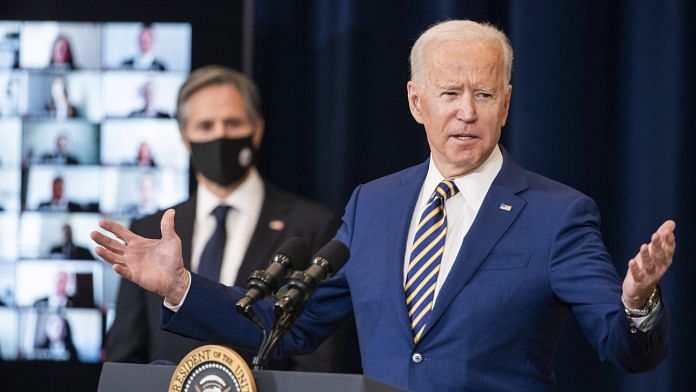Credit where it’s due: The new American administration is getting its optics right on Iran. If Candidate Biden displayed too much eagerness to conciliate the regime in Tehran, President Biden seems to have curbed his enthusiasm.
Joe Biden himself has said little on the subject since moving into the White House. But his foreign policy and national security officials have ruled out an immediate American return to the 2015 nuclear deal, known as the Joint Comprehensive Plan of Action, negotiated by President Barack Obama and abandoned by President Donald Trump. While signaling a desire to return to diplomacy with Tehran, the likes of Secretary of State Antony Blinken and National Security Advisor Jake Sullivan have also made it clear they’re prepared to wait. They want a “longer and stronger agreement” with the Islamic Republic.
This leaves Biden space to pursue an Iran policy that is neither a reaction to Trump’s nor a straightforward continuation of Obama’s.
The administration’s current position on the JCPOA is that the Iranians, who have long since breached the uranium-enrichment limits imposed by the deal, must return to compliance with the terms agreed to by Obama before the U.S. allows for any relief from the sanctions imposed by Trump.
Tehran has been insisting the sanctions be lifted first, and has been trying to build some leverage to force Biden’s hand. It has stepped up enrichment of uranium and started production of uranium metal, which is used to make atomic bombs.
The Americans have thus far ignored the hustle. And there were more encouraging signs of forbearance this week. First, a State Department spokesman implicitly rejected a new Iranian suggestion that the European Union “choreograph” a simultaneous return to compliance by both sides. The Europeans are keen for sanctions to be dropped so they can resume trade with Tehran. They have done little more than wag a disapproving finger at the regime’s nuclear transgressions.
More reassuring still, Blinken has reportedly instructed Rob Malley, the department’s point man on Iran, to avoid groupthink by appointing members with “more hawkish” views to his negotiating team. Malley, who was a pivotal figure in the team that negotiated the 2015 deal, is perceived as being dovish, and his appointment was fiercely opposed by Republicans and some conservative Democrats.
The Biden team seems ready to compensate for big missteps in Obama’s pursuit of the 2015 deal, such as the failure to address Iran’s non-nuclear threats and take into account the views of countries directly menaced by the Islamic Republic. The administration says Iran’s neighbors will have a seat at the table in future negotiations over issues like the regime’s missile program, its use of proxy militias and other destabilizing activities across the region.
While talking more softly than Trump, Biden has also shown a willingness to wield the big stick his predecessor left behind.
If Tehran was expecting leniency on sanctions, it got a rude shock this week as the new administration took a hard line on its covert attempts to export oil. The Department of Justice filed a case in a U.S. district court, seeking to seize 2 million barrels on a Greek-owned tanker that it said Iran was using to ship oil abroad.
Biden has also shown no urgency to keep his campaign promise to ease sanctions and help Iran fight the coronavirus.
All this will cause dismay among those hoping for a speedy American return to the 2015 deal. But they will not be able to accuse Biden, as they did Trump, of using Iran as a whipping boy merely to please Israel and the Gulf Arab states. After all, Biden has also taken a markedly tougher line on Iran’s neighbors, by imposing a freeze on arms sales to Saudi Arabia and ordering a review of the United Arab Emirates’ order for top-line F-35 fighter jets.
On Thursday, Sullivan announced Biden would end support for all offensive military operations of a Saudi-led coalition fighting against the Iran-backed Houthi militias in Yemen. And the fact that the president has not yet called Benjamin Netanyahu suggests he is keeping the Israeli prime minister, the most hawkish of Iran hawks, at an arm’s length.
As a result, the administration has more room to maneuver. Now it falls to President Biden to map his own course on Iran. – Bloomberg
Also read: Antony Blinken says Iran should take first step to restart nuclear deal




There will be policy paralysis with Biden administration.
This administration will make it difficult for allies and alliance but roll over to Russia China turkey even North Korea.
EU will be in advantage as they wouldn’t have to fork over dollars for nato.
Korea and Japan will have hard time.
Quad will be put on back burner.
You will see a lot of noise on inclusion diversity and human rights. But remember it’s meant for allies and alliance not for rogue states. On the contrary they will be rewarded or rolled over instead of being reprimanded.
Good luck allies and alliances.